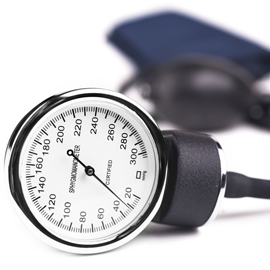 Obesity is a major risk factor for hypertension, a condition that affects 31 percent of the population, according to the Centers for Disease Control and Prevention. That adds up to 67 million Americans walking around with high blood pressure, and many of them will be overweight. Obesity and high blood pressure may be part of the reason your doctor may recommend weight loss surgery or a medically managed program. Consider some of the ways your weight affects your blood pressure.
Obesity is a major risk factor for hypertension, a condition that affects 31 percent of the population, according to the Centers for Disease Control and Prevention. That adds up to 67 million Americans walking around with high blood pressure, and many of them will be overweight. Obesity and high blood pressure may be part of the reason your doctor may recommend weight loss surgery or a medically managed program. Consider some of the ways your weight affects your blood pressure.
What is Blood Pressure?
Blood pressure is a measurement of how hard blood hits the walls of your arteries. That tells medical practitioners how hard your heart is working to keep blood moving. A good average is less than 120/80. Anything with a systolic, the higher number, over 140 is considered high blood pressure.
How Obesity Affects Blood Pressure
Obesity is a known risk factor for high blood pressure, but why? Fatty tissue creates resistance that makes the heart work harder. People who are obese tend to have poor overall cardiovascular health. Prolonged high blood pressure impairs the heart’s ability to fill fully and work efficiently. The hard pounding of blood against the walls of the arteries can change their elasticity, too, making them weaker and more likely to bulge.
Another reason is that fat in your body is a lot more than many people expect. It is an active tissue that produces dozens of chemicals that work on hunger and inflammation within your body. Inflammation in blood vessels is one of the reasons for developing hardened arteries and high blood pressure.
Obesity and high blood pressure are linked to chronic illnesses that can shorten your life span.
- Diabetes
- Cardiac disease
- Sleep apnea
- Peripheral artery disease
- Chronic venous insufficiency
Your risk of cardiovascular disease increases exponentially if you are an obese person with high blood pressure. Finding ways to lose weight is one way to help control your hypertension.
Your Blood Pressure and Weight Loss Surgery
Weight loss surgery isn’t magic. If you have high blood pressure before the procedure, you will still have it afterwards. It does put you on the road for healthy weight management that can help control your blood pressure. Over time, many people can taper off blood pressure medications under the guidance of their doctor.
Finding better ways to stay healthy is part of the overall weight loss program that includes surgery to control how much you can eat at one time. You will also need to increase your physical activity and lower your salt intake. Losing weight is a step in the right direction and weight loss surgery will help get you there.